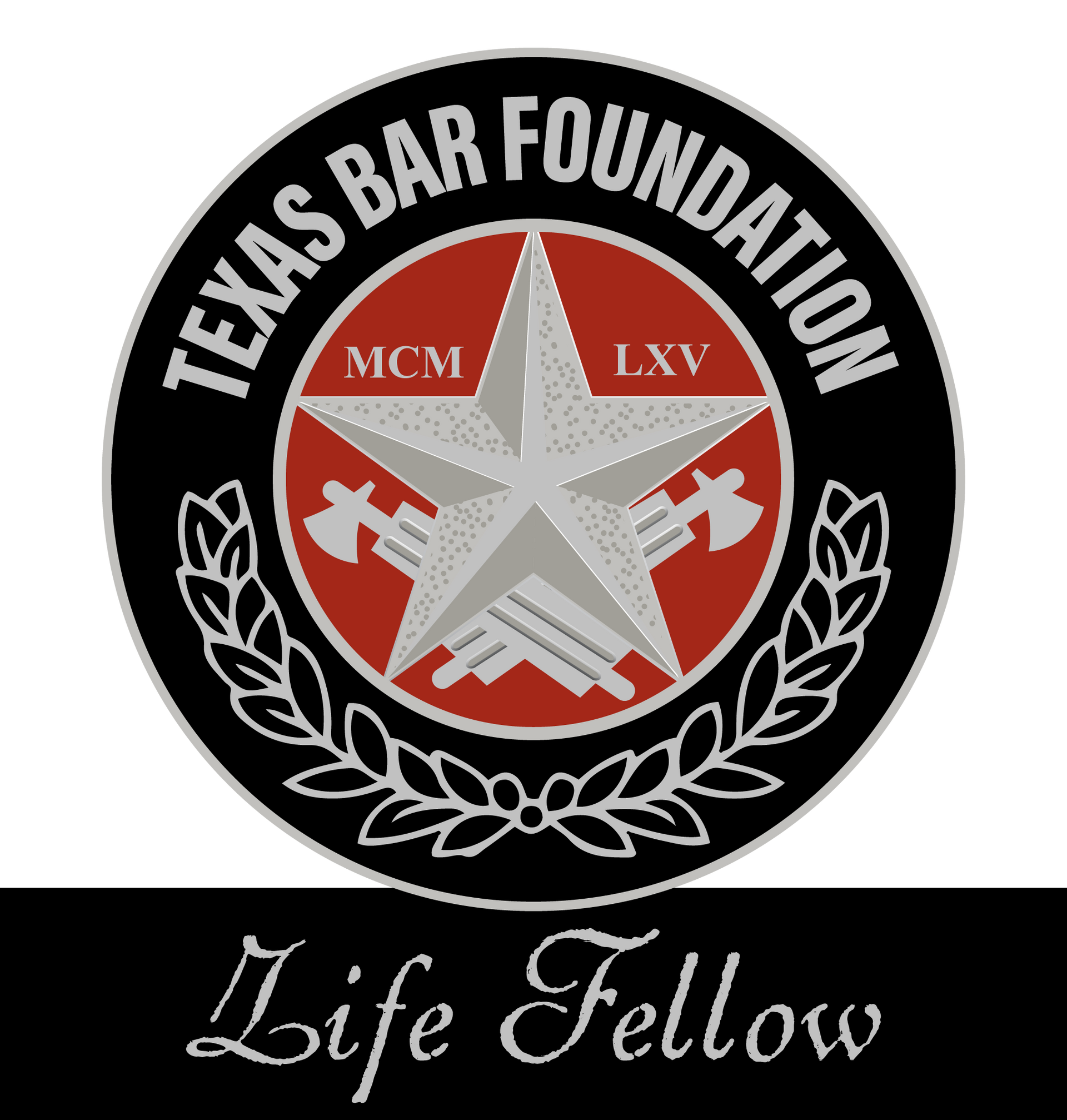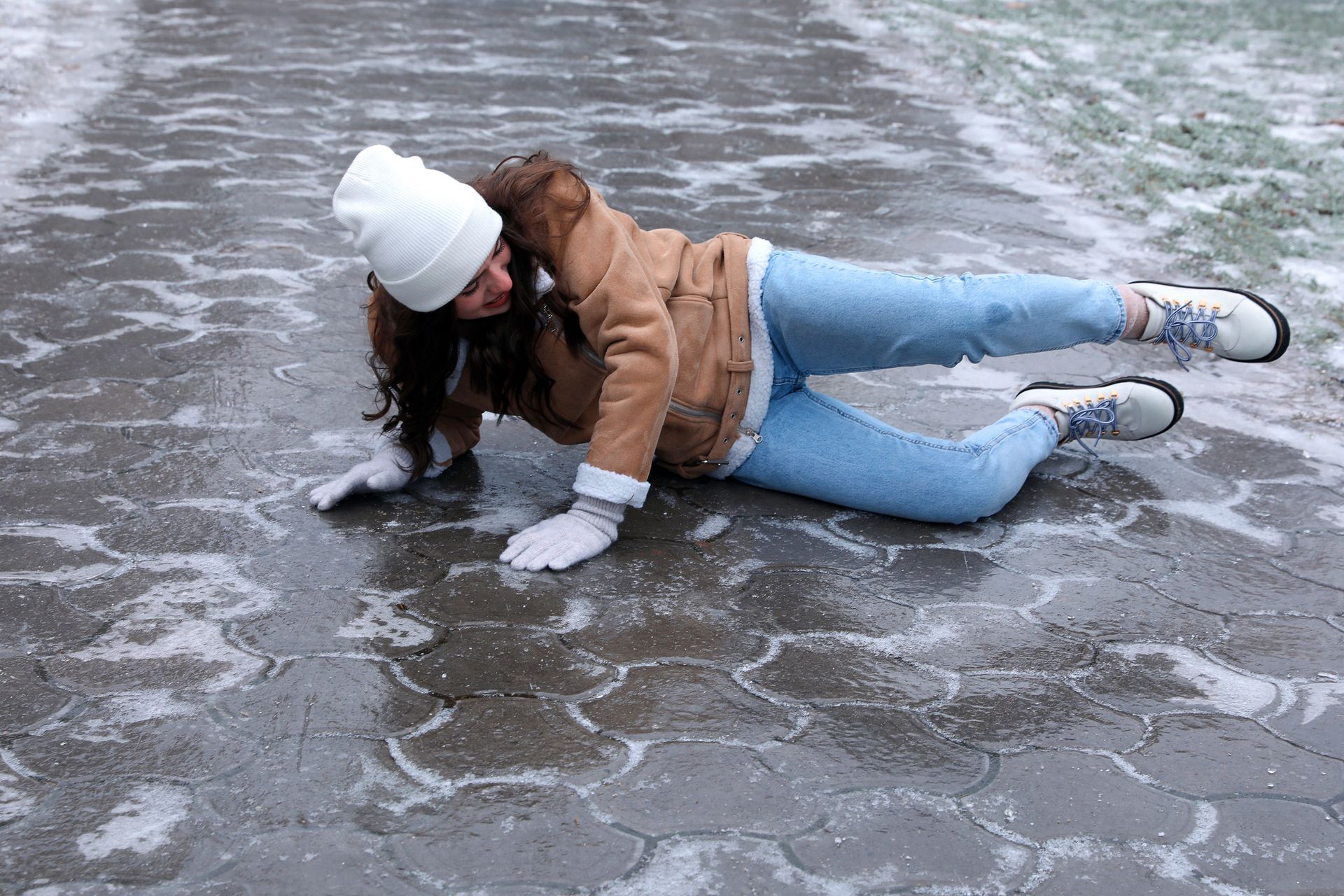Why hire the Gordon & Elias Law Firm?
Cases involving an injury are paid on contingency fee. This means that you only pay if the law firm recovers money for your damages. So, why not hire the best injury lawyer you can? Choosing a personal injury law firm with experience in your type of case and with a history of large recoveries can help you get the best results from your case.
Practice
Areas
Our 60 years of combined experience working with the accident victims and bringing in substantial recoveries for our clients is your assurance that you will receive aggressive legal representation to safeguard your right to recover the maximum compensation you and your family members deserve and need.
SUCCESSFUL
Personal Injury Attorneys

“Todd Elias is like a brother to me now. He is really a good person. I appreciate everything he has done for me.”
— STEVEN C.

“The firm makes you feel more than welcomed. They take time to assist you, they don't rush you through.”
— WILLIAM S.
CLIENTS SHARE THEIR EXPERIENCES
WITH OUR LAW FIRM
I was injured on the job. I called a bunch of lawyers but nobody wanted my case. All the lawyers I talked to told me it was all my fault. Then I called Todd Elias. He listened to the facts and took my case. In less than 14 months, Todd settled my case for more than $1.5 Million Dollars. Plus, Todd helped me put some of the money into a structured settlement that guarantees me a payout every month... — Alfred

“I have friends that have hired other lawyers. Their lawyers have not done nearly as much for them as Gordon & Elias have done for me and my family."
"Todd Elias is like a brother now. He is a really good person. I appreciate everything he has done for me."
“They are fantastic attorneys. I am really pleased with the settlement.
Todd and Steve sit down and explain everything.”
I was injured on the job. I called a bunch of lawyers but nobody wanted my case. All the lawyers I talked to told me it was all my fault. Then I called Todd Elias. He listened to the facts and took my case. In less than 14 months, Todd settled my case for more than $1.5 Million Dollars. Plus, Todd helped me put some of the money into a structured settlement that guarantees me a payout every month... — Alfred
“I have friends that have hired other lawyers. Their lawyers have not done nearly as much for them as Gordon & Elias have done for me and my family."
FREQUENTLY ASKED QUESTIONS
What is a personal injury lawsuit?
Determining if you have a personal injury lawsuit involves evaluating several factors. Here are some key points to consider:
- Injury or Harm: You must have suffered an injury or harm. This could be physical, emotional, or financial. Medical records and other documentation can help establish this.
- Negligence or Fault: The injury must have been caused by someone else's negligence or intentional actions. This means proving that the other party had a duty to act in a certain way, failed to do so, and as a result, you were harmed.
- Causation: There must be a direct link between the other party's actions and your injury. This means showing that the injury would not have occurred but for the other party's actions or inactions.
- Damages: You must have suffered damages as a result of the injury. This can include medical expenses, lost wages, pain and suffering, and other related costs.
- Statute of Limitations: Lawsuits must be filed within a certain period, known as the statute of limitations. This varies by jurisdiction and type of injury.
Consulting with a personal injury attorney can help you assess the specifics of your case and determine if you have a viable lawsuit. They can provide legal advice based on your unique circumstances and help guide you through the legal process.
What is a personal injury attorney?
A personal injury attorney is a lawyer who specializes in representing individuals who have been injured due to the negligence or wrongful actions of others. Our primary role is to help our clients seek compensation for their injuries and related losses. Here are some key functions and responsibilities of a personal injury attorney:
- Case Evaluation: Assess the details of the injury and determine if there is a viable case.
- Investigation: Conduct a thorough investigation to gather evidence, including medical records, witness statements, accident reports, and any other relevant information.
- Legal Advice: Provide clients with legal advice on their rights, the potential value of their claim, and the best course of action.
- Negotiation: Negotiate with insurance companies and the opposing party to seek a fair settlement.
- Litigation: Represent clients in court if a settlement cannot be reached. This involves filing lawsuits, preparing legal documents, and presenting the case before a judge or jury.
- Advocacy: Advocate for our client’s best interests throughout the legal process, ensuring they receive fair treatment and compensation.
- Support: Provide emotional and practical support, helping our clients navigate the complexities of the legal system and cope with their injuries and recovery.
Personal injury attorneys typically work on a contingency fee basis, meaning we only get paid if we win the case or obtain a settlement for our client. This can make legal representation more accessible for those who may not have the financial means to pay upfront legal fees.
How can I afford a personal injury attorney?
Gordon Elias LLP works on a contingency fee basis, which means you don't have to pay any upfront legal fees. Instead, our attorney fee is a percentage of the settlement or judgment you receive if we win your case. Here’s how it generally works:
- Contingency Fee Arrangement: When you hire Gordon Elias LLP on a contingency fee basis, you agree that the firm will take a certain percentage (typically between 25% and 40%) of any settlement or judgment awarded. If we don't win your case, you don't owe the firm any fees.
- No Upfront Costs: You don't have to pay anything out-of-pocket to hire Gordon Elias LLP. Gordon Elias LLP covers the costs of filing fees, expert witnesses, and other expenses necessary to build your case.
- Free Initial Consultation: Gordon Elias LLP offers a free initial consultation. During this meeting, you can discuss your case, and an attorney can help determine if you have a valid claim and explain the contingency fee agreement.
- Transparency in Fees: Gordon Elias LLP will explain our fee structure clearly and ensure you understand how much you will owe if we win your case.
The contingency fee system is designed to make legal representation accessible to individuals who might not be able to afford it otherwise, ensuring that everyone has the opportunity to seek justice and compensation for their injuries.
What is a personal injury case worth?
The value of a personal injury case can vary widely based on several factors. Here are the main elements that influence the worth of a personal injury case:
- Medical Expenses: The cost of past and future medical treatments, including hospital stays, surgeries, rehabilitation, physical therapy, and any other healthcare-related expenses.
- Lost Wages: Compensation for income lost due to the injury, including time off work for recovery and any reduction in earning capacity if the injury affects your ability to work in the future.
- Pain and Suffering: Compensation for physical pain and emotional distress caused by the injury. This can be difficult to quantify and often depends on the severity of the injury and its impact on your daily life.
- Property Damage: If any personal property was damaged as a result of the incident (e.g., in a car accident), the cost of repairs or replacement can be included.
- Loss of Consortium: Compensation for the impact of the injury on your relationship with your spouse or family, including loss of companionship and support.
- Punitive Damages: In cases where the defendant’s actions were particularly reckless or malicious, punitive damages might be awarded to punish the wrongdoer and deter similar behavior in the future. These are less common and vary by jurisdiction.
- Severity and Permanence of Injuries: The more severe and permanent the injuries, the higher the potential compensation. This includes consideration of long-term or lifelong disabilities, disfigurement, and chronic pain.
- Comparative Fault: If you are found to be partially at fault for the incident, your compensation may be reduced proportionally. This depends on the laws in your jurisdiction regarding comparative or contributory negligence.
- Insurance Policy Limits: The available insurance coverage can also cap the amount of compensation you can receive, particularly in auto accident cases or other situations where insurance policies are involved.
- Quality of Legal Representation: As experienced personal injury attorneys, Gordon Elias LLP, can help maximize the value of your case by effectively negotiating with insurance companies and presenting a strong case in court if necessary.
To get a more accurate estimate of what your personal injury case might be worth, please contact us for a free consultation.
What are maritime injuries?
Maritime injuries refer to injuries sustained by workers while working on offshore platforms, vessels, rigs, or other maritime environments. These injuries can occur in various maritime settings, including oil rigs, drilling platforms, ships, barges, and other offshore installations. Offshore work is inherently dangerous due to the hazardous conditions and the nature of the work performed. Here are some key points about maritime injuries:
Common Types of Maritime Injuries:
- Slip and Falls: Wet or slippery surfaces can cause workers to slip and fall, leading to injuries.
- Equipment Accidents: Heavy machinery and equipment can malfunction or be mishandled, causing serious injuries.
- Explosions and Fires: Offshore platforms, particularly those involved in oil and gas extraction, are at risk of explosions and fires.
- Exposure to Hazardous Materials: Workers may be exposed to toxic chemicals and substances.
- Drowning: The risk of falling overboard and drowning is significant in offshore environments.
- Transportation Accidents: Injuries can occur during transportation to and from offshore sites, often by helicopter or boat.
Legal Protections and Remedies:
Offshore workers are protected by several laws and regulations that provide remedies in the event of an injury:
- Jones Act: This federal law allows seamen who are injured in the course of their employment to sue their employers for negligence. It covers injuries sustained on navigable waters.
- Longshore and Harbor Workers' Compensation Act (LHWCA): This act provides compensation to longshoremen, harbor workers, and other maritime workers who are injured on navigable waters or in adjoining areas used in loading, unloading, repairing, or building a vessel.
- Death on the High Seas Act (DOHSA): This act provides compensation to the families of workers who die as a result of injuries occurring on the high seas (beyond three nautical miles from shore).
- Outer Continental Shelf Lands Act (OCSLA): This act extends the LHWCA protections to workers on the outer continental shelf, such as those working on oil rigs and platforms.
Steps to Take if Injured Offshore:
- Seek Medical Attention: Immediate medical treatment is crucial for your health and to document the injury.
- Report the Injury: Notify your supervisor and ensure the incident is officially reported.
- Document Everything: Keep records of medical treatments, incident reports, and any communications related to the injury.
- Consult an Attorney: Given the complexity of maritime and offshore injury laws, consulting with Gordon Elias LLP, an attorney who specializes in maritime injuries, can help you understand your rights and options for compensation.
Maritime injury cases can be complex due to the interplay of various maritime laws and the unique challenges of working in offshore environments. Legal representation can help navigate these complexities and ensure that injured workers receive the compensation they are entitled to.
What do I do if I’m hit by an 18 wheeler?
If you are hit by an 18-wheeler (also known as a semi-truck, commercial vehicle, or tractor-trailer), it is crucial to take specific steps to protect your health, rights, and any potential legal claims. Here’s what you should do:
Immediate Steps at the Scene:
- Ensure Safety: If possible, move to a safe location to prevent further accidents or injuries.
- Call 911: Report the accident to the police and request medical assistance for any injuries.
- Seek Medical Attention: Even if you don't think you're seriously injured, it's essential to get checked by medical professionals. Some injuries may not be immediately apparent.
- Document the Scene: If you can, take photos and videos of the accident scene, vehicle damage, and any visible injuries. Note the weather conditions, road conditions, and any other relevant details.
- Exchange Information: Obtain contact and insurance information from the truck driver and any other involved parties. Get the name of the trucking company, the truck’s license plate number, and the driver’s commercial driver’s license (CDL) number.
- Identify Witnesses: If there are any witnesses, get their contact information and, if possible, record their statements about what they saw.
After the Accident:
- Report the Accident: Notify your insurance company about the accident. Provide them with accurate and factual information but avoid speculating about fault.
- Keep Records: Maintain a file with all documents related to the accident, including medical records, police reports, witness statements, repair estimates, and any correspondence with insurance companies.
- Follow Medical Advice: Attend all medical appointments and follow the treatment plan prescribed by your healthcare providers.
- Avoid Speaking with the Trucking Company’s Insurer: The trucking company’s insurance representatives may contact you. It’s best to refer them to your attorney to avoid making statements that could be used against you.
Legal Steps:
- Consult an Attorney: Contact Gordon Elias LLP, personal injury attorneys who specializes in truck accidents. We can help you navigate the legal process, protect your rights, and seek the compensation you deserve.
- Investigate the Accident: We will conduct a thorough investigation, which may include obtaining the truck’s black box data, driver logs, maintenance records, and other relevant evidence.
- Evaluate Damages: We will help you assess all damages, including medical expenses, lost wages, pain and suffering, property damage, and any long-term impacts on your quality of life.
- File a Claim: We will file a claim against the responsible parties, which may include the truck driver, the trucking company, and other entities involved.
Important Considerations:
- Statute of Limitations: Be aware of the statute of limitations for filing a personal injury claim in your state. It’s important to act promptly to ensure your legal rights are preserved.
- Liability Issues: Truck accidents can involve multiple parties, such as the truck driver, the trucking company, the cargo owner, and manufacturers of truck parts. Determining liability can be complex, which is why legal assistance is crucial.
Taking these steps can help ensure you receive the medical care you need and the legal representation necessary to seek fair compensation for your injuries and losses.
What do I do if I’m hit by a car?
If you get hit by a car, it's crucial to take specific steps to ensure your safety, receive proper medical care, and protect your legal rights. Here’s what you should do:
Immediate Steps at the Scene:
- Ensure Safety: If you can, move to a safe location away from traffic to prevent further harm.
- Call 911: Report the accident to the police and request medical assistance. Even if you don't feel seriously injured, it’s important to get checked by medical professionals.
- Stay Calm and Gather Information: Exchange information with the driver, including their name, contact information, driver’s license number, license plate number, and insurance details.
- Document the Scene: If possible, take photos and videos of the accident scene, the car involved, your injuries, and any relevant road conditions or traffic signals.
- Identify Witnesses: Get the contact information of any witnesses and, if possible, record their statements about what they saw.
After the Accident:
- Seek Medical Attention: Even if you received initial medical care at the scene, follow up with a healthcare provider for a thorough examination. Some injuries might not be immediately apparent.
- Report the Accident: Notify your insurance company about the accident, providing accurate and factual information.
- Keep Records: Maintain a file with all documents related to the accident, including medical records, police reports, witness statements, and any correspondence with insurance companies.
- Avoid Discussing Fault: Do not discuss who was at fault with the driver or witnesses at the scene. Stick to the facts when speaking with the police and your insurance company.
Legal Steps:
- Consult an Attorney: Contact Gordon Elias LLP, personal injury attorneys who specializes in car accidents. We can help you understand your rights, navigate the legal process, and seek the compensation you deserve.
- Investigate the Accident: We will conduct a thorough investigation to gather evidence, including reviewing police reports, obtaining witness statements, and potentially consulting with accident reconstruction experts.
- Evaluate Damages: We will help you assess all damages, including medical expenses, lost wages, pain and suffering, and any long-term impacts on your quality of life.
- File a Claim: We will assist in filing a claim against the responsible party’s insurance company and, if necessary, pursuing a lawsuit to seek fair compensation.
Important Considerations:
- Follow Medical Advice: Attend all medical appointments and follow the treatment plan prescribed by your healthcare providers.
- Statute of Limitations: Be aware of the statute of limitations for filing a personal injury claim in your state. Acting promptly ensures your legal rights are preserved.
- Communication with Insurers: Be cautious when speaking with the at-fault driver’s insurance company. It’s best to have your attorney handle these communications to avoid making statements that could be used against you.
By taking these steps, you can protect your health, legal rights, and potential for compensation after being hit by a car.
What is an industrial injury?
An industrial injury refers to any injury, illness, or condition that occurs as a result of work-related activities in an industrial setting. This can include factories, manufacturing plants, construction sites, warehouses, and other workplaces where physical labor and the use of machinery are common. Industrial injuries can range from minor cuts and bruises to severe injuries or illnesses that may result in long-term disability or death.
Common Types of Industrial Injuries:
- Musculoskeletal Injuries: Strains, sprains, and repetitive stress injuries caused by heavy lifting, repetitive motions, or improper ergonomics.
- Cuts and Lacerations: Injuries from sharp tools, machinery, or materials.
- Fractures and Broken Bones: Resulting from falls, heavy objects, or machinery accidents.
- Burns: Thermal, chemical, or electrical burns from exposure to heat, chemicals, or electrical equipment.
- Respiratory Conditions: Illnesses caused by inhaling toxic fumes, dust, or other hazardous substances.
- Hearing Loss: Resulting from prolonged exposure to loud noises in the workplace.
- Head and Brain Injuries: From falls, being struck by objects, or machinery accidents.
- Eye Injuries: Caused by exposure to harmful chemicals, flying debris, or bright lights.
- Crush Injuries: When a part of the body is caught between or under heavy machinery or objects.
- Exposure to Hazardous Substances: Long-term exposure to chemicals, asbestos, or other dangerous materials can lead to chronic health conditions like cancer or respiratory diseases.
Causes of Industrial Injuries:
- Unsafe Work Practices: Lack of proper training, inadequate safety measures, or failure to follow safety protocols.
- Defective Equipment: Malfunctioning or poorly maintained machinery and tools.
- Workplace Hazards: Slippery floors, unsecured objects, poor lighting, or cluttered workspaces.
- Overexertion: Lifting, pushing, or pulling heavy objects without proper techniques.
- Repetitive Motion: Performing the same motion repeatedly without breaks or ergonomic support.
- Lack of Personal Protective Equipment (PPE): Not using or having access to necessary protective gear such as gloves, helmets, goggles, and ear protection.
Legal and Compensation Considerations:
- Workers' Compensation: Most industrial injuries are covered under workers' compensation laws, which provide benefits to injured workers regardless of fault. This can include medical expenses, lost wages, and disability benefits.
- Third-Party Claims: If the injury was caused by a third party (e.g., a manufacturer of defective equipment), you might be able to file a personal injury lawsuit in addition to receiving workers' compensation.
- Occupational Safety and Health Administration (OSHA): Employers are required to comply with OSHA regulations to ensure workplace safety. Reporting violations to OSHA can lead to investigations and enforcement actions to prevent future injuries.
- Consulting an Attorney: If you sustain an industrial injury, consulting with an attorney who specializes in workers' compensation and personal injury law can help you navigate the claims process and ensure you receive fair compensation.
Taking these steps can help ensure that you receive the medical care and legal support you need following an industrial injury.
What is a FELA case?
A FELA case refers to a legal claim filed under the Federal Employers' Liability Act (FELA), a U.S. federal law enacted in 1908 to protect and compensate railroad workers who are injured on the job. Unlike standard workers' compensation claims, FELA cases require the injured worker to prove that the railroad company was legally negligent in some way, contributing to the injury. Here are the key aspects of a FELA case:
Key Aspects of FELA:
Applicability:
- FELA applies exclusively to railroad workers who are employed by common carrier railroads engaged in interstate commerce.
- It covers a wide range of employees, including engineers, conductors, track workers, signal maintainers, and others.
Negligence Requirement:
- Unlike workers' compensation, which is a no-fault system, FELA requires the injured worker to prove that the railroad was at least partially negligent in causing the injury.
- Negligence can be shown if the railroad failed to provide a safe work environment, adequate training, proper equipment, or violated safety regulations.
Compensation:
- Under FELA, injured workers can seek compensation for medical expenses, lost wages (both past and future), pain and suffering, mental anguish, and disability.
- Compensation is typically greater under FELA compared to standard workers' compensation due to the broader range of recoverable damages.
Comparative Negligence:
- FELA cases operate under a comparative negligence system. This means that if the injured worker is found to be partially at fault for the injury, their compensation may be reduced proportionally.
- For example, if the worker is found to be 20% at fault and the railroad 80% at fault, the worker's compensation would be reduced by 20%.
Legal Process:
- FELA claims can be filed in either state or federal court.
- The injured worker has the right to a jury trial, which can be beneficial in securing fair compensation.
Steps to Take in a FELA Case:
- Seek Medical Attention: Immediately get medical help for your injuries. Ensure all treatments and diagnoses are documented.
- Report the Injury: Notify your employer about the injury as soon as possible and ensure an accident report is filed.
- Gather Evidence: Collect evidence related to the accident, including photographs of the scene, equipment, and any hazardous conditions. Obtain contact information of any witnesses and record their statements.
- Consult an Attorney: Contact Gordon Elias LLP, attorneys who specializes in FELA cases. We can help you understand your rights, gather necessary evidence, and navigate the complex legal process.
- File a Claim: We will help you file a FELA claim, ensuring all legal requirements are met and deadlines are observed.
Importance of Legal Representation:
Due to the complexity of FELA cases and the requirement to prove negligence, having an experienced attorney is crucial. We will help build a strong case by:
- Investigating the accident thoroughly.
- Gathering and preserving evidence.
- Consulting with experts if necessary.
- Negotiating with the railroad company and their insurers.
- Representing you in court if the case goes to trial.
FELA provides important protections for railroad workers, ensuring they have a means to seek fair compensation for injuries sustained on the job due to their employer’s negligence.
What do I do if I’m injured in the oilfield?
If you are injured in the oilfield, it is crucial to take specific steps to ensure your safety, receive appropriate medical care, and protect your legal rights. Here’s what you should do:
Immediate Steps at the Scene:
- Seek Medical Attention: Get immediate medical help for your injuries. Even if the injury seems minor, it’s essential to be checked by a medical professional to document your condition and prevent complications.
- Report the Injury: Notify your supervisor or employer about the injury as soon as possible. Ensure that the incident is officially documented in an accident report.
- Document the Scene: If you can, take photos and videos of the accident scene, equipment involved, and any visible injuries. Note any safety hazards or conditions that contributed to the incident.
- Identify Witnesses: Get the contact information of any coworkers or bystanders who witnessed the accident. Their statements may be crucial in supporting your claim.
After the Accident:
- Follow Medical Advice: Adhere to the treatment plan prescribed by your healthcare provider and attend all follow-up appointments.
- Keep Records: Maintain a file with all documents related to the accident, including medical records, accident reports, witness statements, and any correspondence with your employer or insurance companies.
- Report the Injury to OSHA: If the injury is severe, consider reporting the incident to the Occupational Safety and Health Administration (OSHA), which can investigate workplace safety violations.
Legal Steps:
- Consult an Attorney: Contact Gordon Elias LLP, personal injury attorneys who specializes in oilfield injuries and workplace accidents. We can help you understand your rights and guide you through the legal process.
- Workers’ Compensation Claim: File a workers’ compensation claim with your employer’s insurance company. This can help cover medical expenses and lost wages. We can assist with this process.
- Third-Party Claims: If a third party (e.g., equipment manufacturer, contractor) contributed to your injury, you might be able to file a personal injury lawsuit against them in addition to your workers’ compensation claim.
- Investigate the Accident: We will conduct a thorough investigation to gather evidence, including reviewing safety records, obtaining witness statements, and consulting with experts if necessary.
- Evaluate Damages: Assess all damages, including medical expenses, lost wages, pain and suffering, and any long-term impacts on your quality of life.
Important Considerations:
- Statute of Limitations: Be aware of the time limits for filing claims in your state. Workers’ compensation claims and personal injury lawsuits have different statutes of limitations.
- Workers’ Rights: Understand your rights under state and federal laws, such as the Occupational Safety and Health Act (OSHA) and any relevant state workers’ compensation statutes.
- Communication: Be cautious when speaking with your employer’s insurance company. It’s often best to have your attorney handle these communications to avoid making statements that could harm your claim.
Types of Compensation:
- Medical Expenses: Coverage for all medical treatments related to the injury.
- Lost Wages: Compensation for wages lost during recovery.
- Disability Benefits: Payments if the injury results in partial or total disability.
- Pain and Suffering: Compensation for physical pain and emotional distress.
- Vocational Rehabilitation: Assistance with retraining or finding new employment if you can’t return to your previous job.
By following these steps, you can ensure you receive the necessary medical care and legal support to seek fair compensation for your injuries sustained in the oilfield.
EVERY STATE LIMITS THE AMOUNT OF TIME YOU HAVE TO FILE A CLAIM.
DON'T DELAY.
CONTACT THE ATTORNEYS AT GORDON & ELIAS, LLP TODAY
TO PRESERVE YOUR RIGHT TO A RECOVERY.



Contact Us
We will get back to you as soon as possible.
Please try again later.
100% FREE CASE EVALUATION
Free Consultation • No Fee If No Recovery
By providing my phone number to Gordon & Elias, LLP, I agree and acknowledge that Gordon & Elias, LLP may send text messages to my wireless phone number for any purpose. Message and data rates may apply. Message frequency will vary, and you will be able to Opt-out by replying “STOP”.











